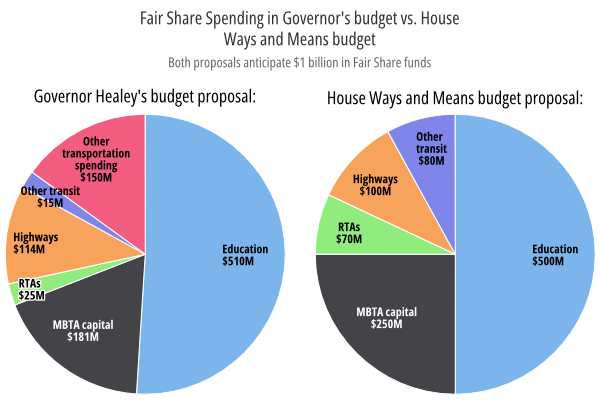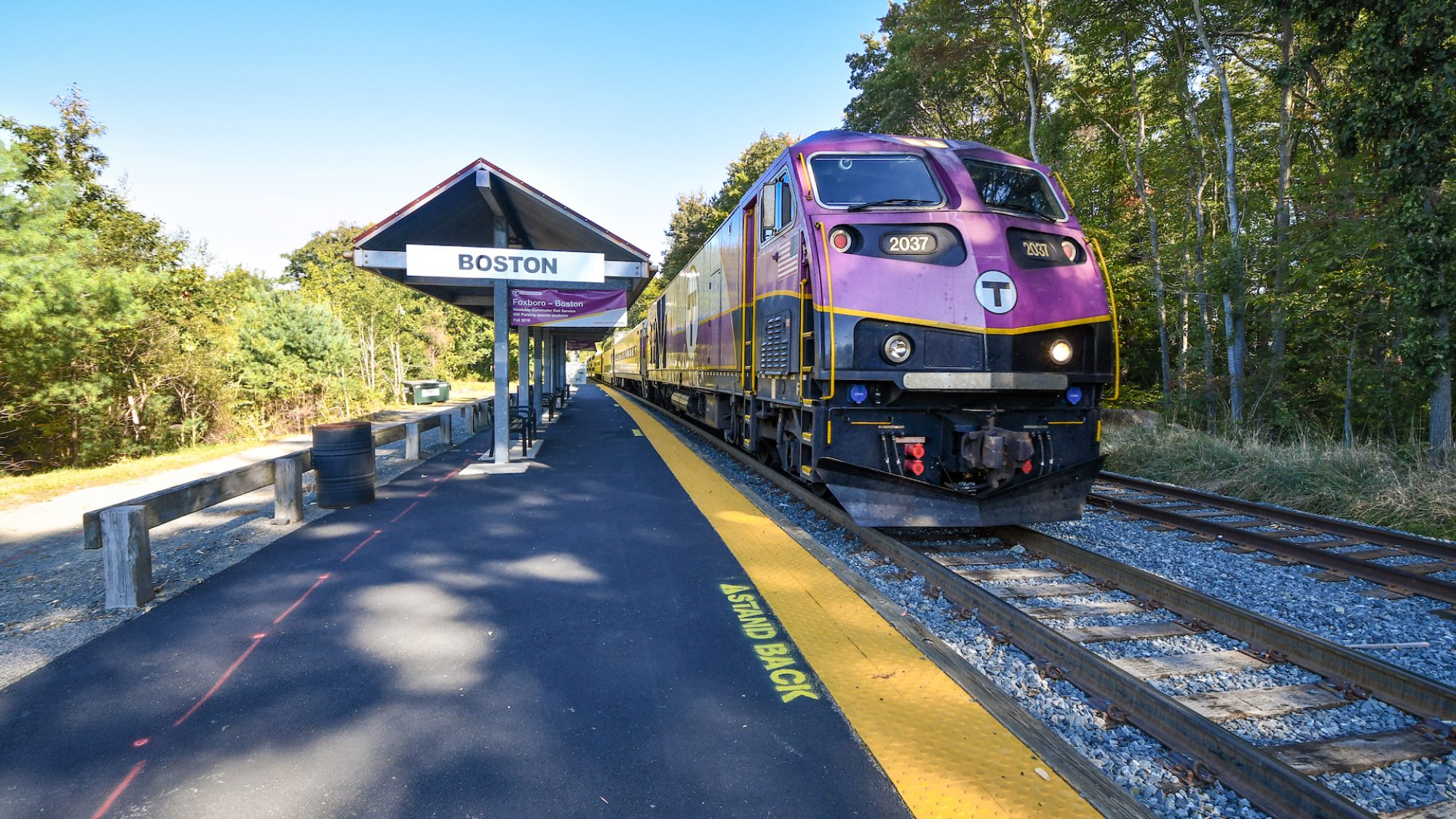A new state budget proposal from the House Ways and Means Committee would ante up more state funding for transit, with a particularly large boost in funding for the 15 regional transit authorities that operate bus routes outside of the MBTA service area.
The House Committee on Ways and Means last week issued its recommended revisions to the Governor's budget proposal, which Governor Healey released at the end of February.
The Ways and Means proposal aligns with the governor's proposal to establish a new "Education and Transportation Fund" from the state's new Fair Share Amendment income tax surcharge on high-income taxpayers, and split an anticipated $1 billion in new funding evenly between education and transportation projects.
But while Gov. Healey proposed to spend slightly more of the Fair Share revenue on MassDOT's road and highway programs, the House budget proposal would spend more on transit – particularly for MBTA capital projects and for regional transit authorities (see chart above).
Some of the biggest changes the House proposes include $69 million more for MBTA capital projects, which are necessary to repair the T's failing infrastructure, and $45 million more for regional transit authorities (RTAs).
To fund these increases for transit, the House proposal would spend less on MassDOT highway programs, although it preserves a $100 million line-item for bridge repair projects.
The House proposal also drops two big spending items that the Governor had proposed in her budget bill: $50 million to match federal grants from the new Bipartisan Infrastructure Law, and $100 million for a new "Municipal Partnership Initiative," which would have helped local governments design and construct smaller transportation projects.
Under both proposals, these additional funds from the new Education and Transportation Fund would supplement other funding for the RTAs ($94 million) and for the MBTA ($187 million in operating assistance) from other, existing sections of the state budget. Those figures are roughly the same in both the Governor's and the House Ways and Means budget proposal.
Both bills also set aside $5 million from the new Education and Transportation Fund to set up a new low-income fare program for the MBTA.
Although RTA funding is a relatively small slice of the new spending, a $70 million budget increase would represent a 74 percent increase in state support for the 15 transit agencies outside the MBTA service area.
In addition to supporting increased bus service, that level of state funding would likely be enough to let those agencies continue or expand fare-free policies, since fare revenues historically have covered relatively small portions of each RTA's budget.
Before the pandemic, Worcester's WRTA, the second-largest RTA in the state, received about $3 million a year in fare revenue – a figure that doesn’t include the increased operational costs the agency had to pay to administer its fare collections – to cover about 14 percent of its operating budget.
To date, Worcester and other agencies that have embraced fare-free policies to boost ridership have been relying on federal pandemic relief funds to compensate for lost fare revenue.
According to a new MassINC poll released earlier this week, there is broad public support for increasing the state's financial contributions to the RTAs.
MassINC's pollsters estimate that nearly 4 out of every 5 Massachusetts voters support a significant increase in state spending for the RTAs, especially if the increased funding could be used for better bus service on nights and weekends, when bus service is particularly sparse.
The state budget is likely to go through a lot more revisions before it receives final approval and takes effect on July 1. The rest of the state's House of Representatives will have a chance to debate and offer amendments on the Ways and Means Committee's proposal, and the state Senate will also have to approve its own budget.






